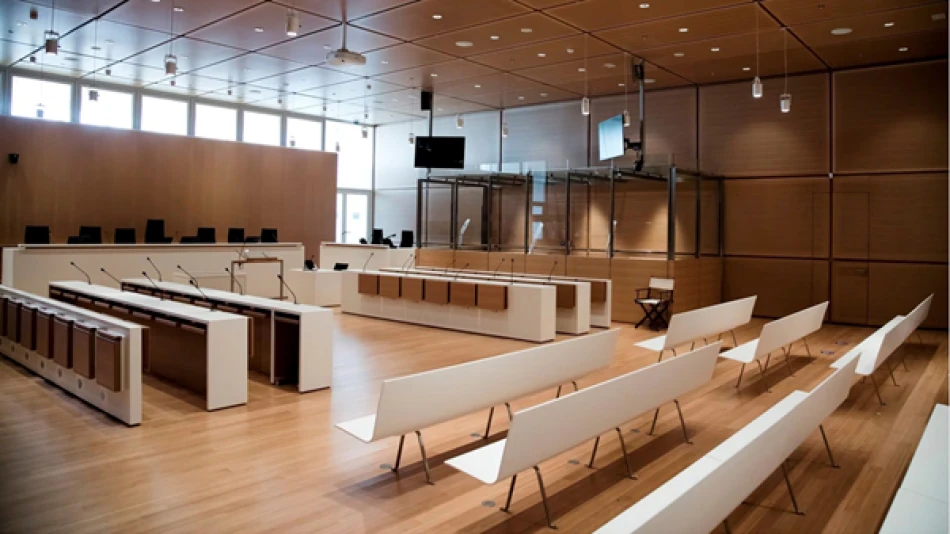
Former ISIS-Linked Women Face Trial in France: Uncovering the Aftermath of Radicalization
France Tries Three Women Linked to ISIS Propaganda Chiefs Behind 2015 Paris Attacks
A French court will begin trying three women suspected of ISIS membership next Monday, including the niece of the Clain brothers who provided the chilling audio claiming responsibility for the November 13, 2015 Paris attacks that killed 130 people. The case highlights how terrorist networks often extend through family ties and personal relationships, creating webs of radicalization that persist long after major attacks.
The Clain Connection: From Family Ties to Terror Networks
Jennifer Clain, 34, stands at the center of this trial as the niece of Jean-Michel and Fabien Clain, two French nationals who became ISIS propaganda operatives in Syria. The brothers gained notoriety when Fabien's voice was heard in the audio recording claiming ISIS responsibility for the coordinated attacks across Paris, including the Bataclan concert hall massacre and restaurant shootings.
The Clain brothers, believed killed in Syria, were sentenced to life imprisonment in absentia by a French court in 2022. Prosecutors described their propaganda work as playing an "essential role in spreading terror and recruiting new fighters" – a assessment that underscores how media operations became as crucial as battlefield tactics for ISIS.
A Web of Radicalization Through Marriage and Family
The prosecution's case reveals how radicalization spread through intimate relationships. At just 16, Jennifer Clain married Kevin Gono, a match arranged by her uncle Jean-Michel. The couple, along with a third person, traveled to ISIS-controlled Raqqa in 2014, where Gono also joined the terrorist organization.
The other two defendants illustrate different pathways to extremism. Christine Allain, 67, Gono's mother and a former teacher who had converted to Islam years earlier, also resided in Raqqa. Court documents suggest she suffered from depression and was heavily influenced by her eldest son Thomas Coulange, born in 1982, whom she viewed as her "savior."
University Connections and Regional Networks
The third defendant, Maïlaine Douart, represents the academic angle of radicalization networks. She first met Coulange as a teenager in France's Basque region, then reconnected at university in Toulouse, where Coulange also encountered Fabien Clain. This geographic clustering around southwestern France universities suggests how higher education institutions became inadvertent recruiting grounds.
Legal and Security Implications
The women face charges of belonging to a terrorist criminal organization before Paris's specialized criminal court. This trial comes as European security services continue tracking ISIS returnees and their associates, with France maintaining heightened vigilance nearly eight years after the Paris attacks.
The case demonstrates the challenge facing counterterrorism efforts: dismantling not just operational cells, but the broader social networks that sustained ISIS recruitment. Unlike high-profile fighters or planners, these defendants represent the support infrastructure that enabled the group's propaganda machine and facilitated travel to Syria during ISIS's territorial peak from 2014-2017.
Broader Counter-Terrorism Context
France has prosecuted hundreds of ISIS-related cases since 2014, with particular focus on French nationals who traveled to Syria and Iraq. This trial reflects ongoing efforts to hold accountable not just direct participants in violence, but those who contributed to terrorist organizations' broader operations and recruitment efforts.
The family connections in this case underscore how terrorist networks often mirror criminal organizations in their reliance on trust-based relationships and kinship ties, making them both more resilient and more vulnerable to comprehensive law enforcement strategies.
Most Viewed News

 Layla Al Mansoori
Layla Al Mansoori






